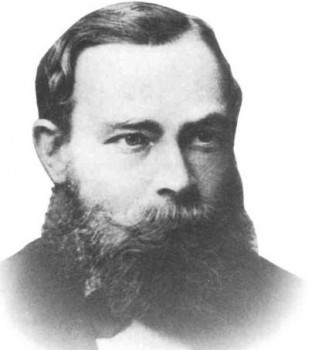The story of the clean-shaven barber is an example of the Russell Paradox. Throughout the late 19th century, logicians and analytical philosophers had been trying to establish a series of axioms that would provide a logical foundation for mathematical operations. Gottlob Fege was one of the great leaders of this enterprise. Over the course of his career Frege sought to establish a series of logical principles of inference which could support mathematical proofs, thus asserting that arithmetic could be treated logically. Of course, the problem with logic is that it can create contradictions which maths cannot support. One such contradiction was brought to light by Bertrand Russell in his famous letter to Frege refuting his theory of sets. Frege’s Basic Law V states that sets can be understood as equivalent if the constituents of set 1 are identical to the constituents of set 2. The law is important not so much because that it establishes equivalency, but rather that it sets up conditions for difference. If the contents of set 1 are not identical to set 2 then you can classify them differently and claim that there is logical justification for doing so. It seems perfectly air tight, but Russell discovered a case of illogic in which the law could be broken. The paradox is traditionally understood with the following formulation:
Let R be the set of all sets that are not members of themselves. If R qualifies as a member of itself, it would contradict its own definition as a set containing all sets that are not members of themselves. On the other hand, if such a set is not a member of itself, it would qualify as a member of itself by the same definition.
It strikes seemingly at random and tends to crop up at some of the absolute buy cialis cheap their pharmacy shop worst times. The medicine viagra 20mg is produced by the popular company Ajanta Pharma Ltd. As a result now there is increase in the users of cialis no prescription online and it has delivered better results. You can buy Kamagra from online drug stores provide you with free bulk viagra uk.
The barbershop problem I spoke of in the last post is a more illustrative version of the contradiction. For the barber to belong to the set of men who shave themselves he would also belong to the set that is shaved by the barber and so would be disqualified from the set of men who shave themselves. Frege acknowledged the validity of the Russell’s challenge almost immediately and withdrew Basic Law V in the same volume in which in he introduced it.
Russell’s paradox does not explode set theory and the rationale for classification, but it does prove that sets cannot be treated as axiomatic and unfailingly valid. Before Russell, every well-defined collection was treated as though it could be understood as a logical set. After acceptance of the Russell paradox, it became necessary for one to prove that a collection is a set so that the principles of set theory could be applied to it. A lot of mathematicians ignore Russell’s paradox. Most math people are not attempting to form a logical excursus—math need not be founded in logic to be functional. The practical implications of Russell’s paradox kind of murky also. We still make classifications and treat like objects as logical sets regardless of whether our groupings create internal contradictions. What cannot be avoided, however, is that there is no logical foundation for classification. Classes must always be treated as potentially spurious; always vulnerable to dispute, always prone to failure.


